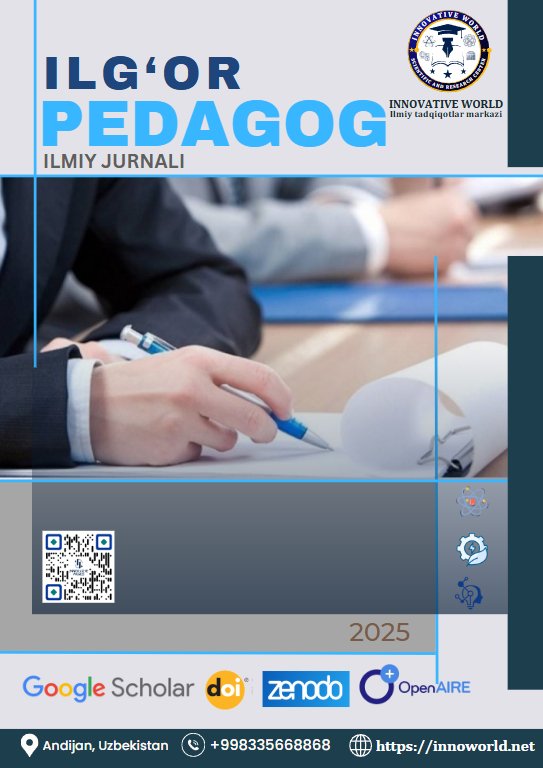The Use of Innovative Technologies in Organizing the Educational Process
Keywords:
educational technology, innovation in education, digital learning, e-learning, virtual learning environments, personalized educationAbstract
In the modern educational landscape, the implementation of innovative technologies plays a vital role in enhancing the quality, accessibility, and effectiveness of teaching and learning. This paper examines the theoretical foundations, practical applications, and challenges of using innovative technologies in organizing the educational process. It also outlines the potential impact of these technologies on pedagogy, learner engagement, and educational outcomes.
References
1. Anderson, T., & Dron, J. (2011). Three generations of distance education pedagogy. *The International Review of Research in Open and Distributed Learning*, 12(3), 80-97.
2. Bonk, C. J., & Graham, C. R. (Eds.). (2012). *The Handbook of Blended Learning: Global Perspectives, Local Designs*. John Wiley & Sons.
3. Johnson, L., Adams Becker, S., Estrada, V., & Freeman, A. (2014). *NMC Horizon Report: 2014 Higher Education Edition*. The New Media Consortium.
4. Redecker, C. (2017). *European Framework for the Digital Competence of Educators: DigCompEdu*. Publications Office of the European Union.
5. Siemens, G. (2005). Connectivism: A learning theory for the digital age. *International Journal of Instructional Technology and Distance Learning*, 2(1), 3-10.


